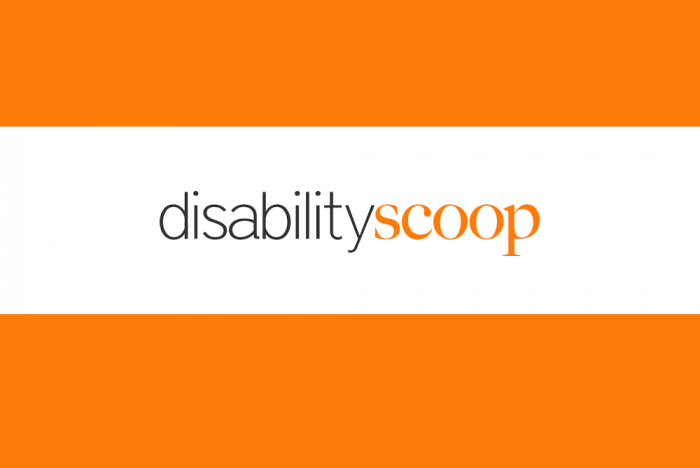Reminder for Savings for Members: RCPA Captive Health Plan Webinar on Sept. 18
RCPA Member Threshold Rehabilitation Services Announces Rededication of the Hope Blossoms Mural
Research Shows Hearing Test May Help Diagnose Autism In Newborns
NIH Weighs Changes To Its ‘Ableist’ Mission Statement
Overdoses Soared Even as Prescription Pain Pills Plunged
RCPA Members Post Billboard Thanking DSPs During DSP Recognition Week
For those driving through Pennsylvania on Route 22 this week, be sure to keep an eye out for the Happy Direct Support Professional Week billboard! Several RCPA members were involved in the creation of this billboard, and we join them in thanking all DSPs for their hard work and dedicated service!
Input Needed: Proposed Regulations for Adult Protective Services Programs

The Administration for Community Living (ACL) is seeking input on a proposed rule to establish the first-ever federal regulations for adult protective services (APS) programs. Instructions for submitting comments and registering for an informational webinar can be found on ACL’s website and below.
APS programs across the country support older adults and adults with disabilities who experience, or who are at risk of, abuse, neglect, self-neglect, or financial exploitation. APS programs investigate reports of maltreatment; conduct case planning, monitoring, and evaluation, and provide, or connect people who have experienced maltreatment to, a variety of medical, social service, economic, legal, housing, law enforcement, and other protective, emergency, or support services to help them recover. Over the past decade, ACL has led federal efforts to support the critical work of APS programs through a variety of initiatives.
First-Ever Federal Regulations for APS
The proposed rule aims to improve consistency and quality of APS services across states and support the national network that delivers APS services, with the ultimate goal of better meeting the needs of adults who experience or are at risk of maltreatment. To those ends, the proposed rule:
- Establishes a set of national standards for the operation of APS programs that all state APS systems must meet. These standards formalize — and build upon — the existing National Voluntary Consensus Guidelines for State APS Systems.
- Establishes common definitions for the national APS system to improve information sharing, data collection, and standardization between and within states.
- Requires state APS systems to develop policies and procedures, consistent with state law, for coordination and sharing of information to facilitate investigations with other entities, such as state law enforcement agencies and state Medicaid agencies.
- Requires state policies and procedures to be person-directed and based on concepts of least restrictive alternatives.
- Establishes requirements for data collection, retention, and reporting.
- Establishes requirements for mandatory staff training and ongoing education on core competencies for APS staff and supervisors.
ACL has created a fact sheet with highlights of key provisions of the rule, and the full text of the proposed rule can be found on the Federal Register website.
Input Needed
The proposed rule is the culmination of many years of engagement with stakeholders from APS and long-term care ombudsman programs, as well as disability advocates, from across the country. It also reflects input received through several listening sessions, extensive research, and analysis of data from a 2021 survey of 51 APS systems, ACL’s National Adult Maltreatment Reporting System, and policy profiles from APS programs in all states and territories.
ACL now seeks feedback on the proposed rule from all who are interested in improving implementation of APS programs and services. Input from the aging and disability networks and the people served by APS programs is particularly crucial.
Comments will be accepted for 60 days, beginning when the proposed rule is officially published in the Federal Register (which currently is scheduled for Tuesday, September 12). Instructions for commenting, along with the comment deadline, can be found in the Federal Register notice and on ACL’s website.
An informational webinar will be held on Monday, September 18, at 11:30 am ET. Advance registration is required.
For additional questions, contact Fady Sahhar.
RCPA Submits Regulatory Reform Recommendations for CRR Services
On behalf of the RCPA Community Residential Rehabilitation (CRR) service providers and the individuals of Pennsylvania that they serve, RCPA submits our CRR Regulatory Reform Recommendations to the Office of Mental Health and Substance Abuse Services (OMHSAS). The current lack of access to care is a result of the workforce crisis and operational requirements of implementing the regulations. We feel these access issues and individuals waiting for services are compelling reasons, in the interest of the public, to merit a review of the regulations based on section 8.1 of the Regulatory Review Act (71 P.S. § 745.8a).
The COVID-19 DHS regulatory flexibilities provided relief for providers, and OMHSAS continues to offer waivers to agencies experiencing critical staffing shortages. Providers are grateful for these temporary solutions; however, these waivers do not address the long-term impacts of the current regulatory requirements. Providers continue to struggle to hire qualified staff and contend with burdensome operational requirements, many of which negatively contribute to the efficiency of care delivery. Therefore, many of the guidelines that were allowed under the suspension of regulations and frequent waiver requests are incorporated into recommendations for permanent improvements to the regulations.
Our recommendations place focus on the care of the individuals and address the challenges and barriers CRR service providers have faced in creating the staffing infrastructures and meeting the burdensome operational protocols for regulatory compliance. The overreaching nature of the regulations, coupled with the impact of the pandemic, has caused great strain on an already depleted behavioral health workforce. These system stressors limit the ability to provide vital, quality services to individuals. Under current regulations, programs are forced to focus on administrative details that do not have a meaningful effect on the actual care of the individual.
These CRR Regulatory Recommendations will also be directed to the Governor’s Policy Office, the Department of Human Services (DHS) Secretary Arkoosh, and members of the Pennsylvania General Assembly.
RCPA would like to thank the members of the CRR Regulatory Review team for their focused and diligent efforts to make this submission possible. If you have any questions, please contact RCPA Policy Director Jim Sharp.
PA Master Plan for Older Adults White Paper Released
The Pennsylvania Department of Aging has released the PA Master Plan for Older Adults White Paper. The White Paper is an overview of the origins, development process, and core tenets that are shaping this foundational 10-year aging plan for Pennsylvania and is being offered to aging stakeholders and all interested individuals as a reference guide when formulating and submitting comments on the development of the plan.
Digital forms for providing online comments and participating in a needs assessment survey are available here. This site also contains continually updated information on hundreds of community listening sessions that the Area Agencies on Aging (AAA) are convening in every county in Pennsylvania.

















